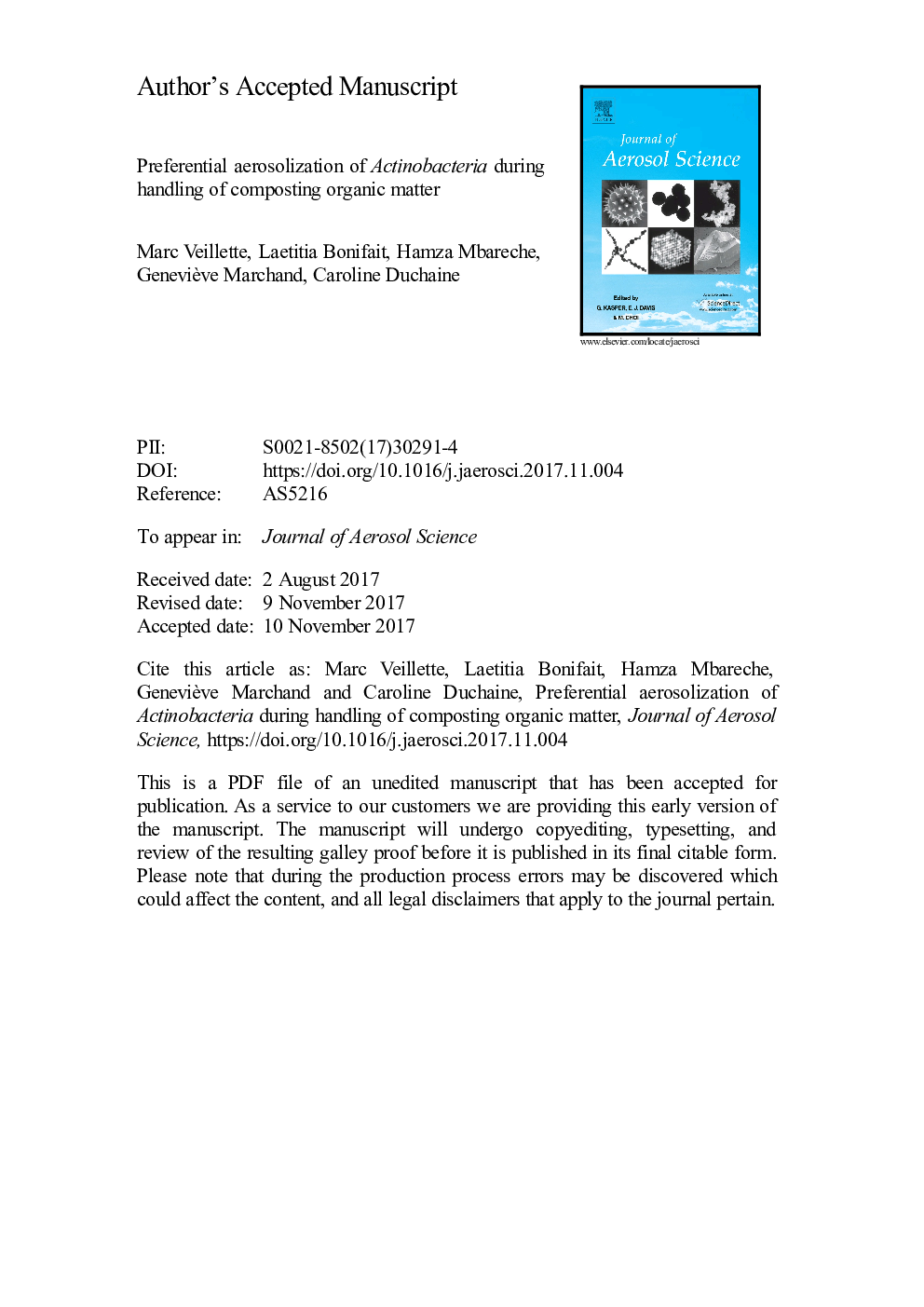| Article ID | Journal | Published Year | Pages | File Type |
|---|---|---|---|---|
| 8865316 | Journal of Aerosol Science | 2018 | 28 Pages |
Abstract
Bioaerosols are commonly defined as biological particles suspended in the air. The concentration of bioaerosols found in the air of composting plants depend upon the source nature and composition, season, physical and mechanical factors such as wind and temperature. The aerosolization potential of particular microorganisms could significantly differ between species depending on morphological and biochemical characteristics, although this phenomenon is poorly understood. The aim of this study was to investigate, using new sequencing technologies and qPCR, the preferential aerosolization of microorganisms in different composting plants processing various raw materials. Bacteroidetes, Firmicutes, Proteobacteria and Actinobacteria constituted the major phyla of bacteria found in bioaerosols from compost. There is a clear association between microorganisms found in the air and in compost samples. Nevertheless, Actinobacteria-associated phyla or species are more likely to be enriched in air samples. Using new sequencing MiSeq Illumina® technology, this study demonstrates the preferential aerosolization of Actinobacteria and more specifically, clinically-relevant taxa such as Saccharopolyspora, Saccharomonospora, Streptomyces and Mycobacterium.
Keywords
Related Topics
Physical Sciences and Engineering
Earth and Planetary Sciences
Atmospheric Science
Authors
Marc Veillette, Laetitia Bonifait, Hamza Mbareche, Geneviève Marchand, Caroline Duchaine,
